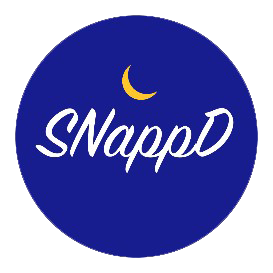50% - 75% of children with neurodevelopmental or psychiatric comorbidities such as ASD may experience paediatric insomnia.
Paediatric insomnia is a widespread problem, with an overall prevalence of 1% to 6%, but rising to 50% to 75% in children with neurodevelopmental or psychiatric comorbidities, and specifically ASD and neurogenetic disorders (e.g. Rett Syndrome, Tuberous Sclerosis, Smith-Magenis Syndrome and Angelman Syndrome).3
The sleep disturbances exacerbate both cognitive performance deficits and behavioural problems and subsequently cause entire-family distress. Long-term sleep disorders, and the resulting day and night care difficulties, are among the main factors affecting parental decisions on whether, and when, to institutionalise their child.4
Increasing evidence demonstrates the compounding effect of sleep problems on autism symptomatology.
In toddlers, sleep difficulties are associated with lower developmental functioning. In children and adolescents, sleep disturbances, particularly reduced sleep duration, predict ASD symptom severity. Poor sleepers with ASD have higher problems with social interaction, increased affective (mood) problems, lower adaptive functioning, and communication deficits. Shorter sleep duration and night-waking are associated with more communication problems whereas bedtime resistance, screaming during the night, and fewer hours of sleep are linked to stereotypic behaviours. Additionally, sleep problems exacerbate externalising (aggressive, hyperactive, noncompliant, and under-controlled) behaviours and internalising (anxious, depressive, and overcontrolled behaviours) problems.5
Poor sleep also predicts later anxiety difficulties both in neurotypical and ASD children.
Conclusions that can be drawn from these studies/findings are limited by possible bias in the relationships between sleep and symptom severity due to comorbid developmental disabilities. However, sleep onset delay, sleep duration, and parasomnias exacerbate autism severity in ASD children without any comorbid developmental disabilities. Night-waking is a strong predictor for social interaction deficits, whereas sleep onset delay predicts communication difficulties, stereotyped behaviour, and autism severity.5 It is noteworthy that in the Slenyto® studies, Longest Sleep Episode (LSE) and Total Sleep Time (TST) were important efficacy outcomes.3,6,7 In the Slenyto registration seeking studies, improvements in child (externalising) behaviours were significantly correlated with changes (improvements) in TST and duration of uninterrupted sleep, but not for Sleep Latency (SL). The impact of sleep duration on behaviour can thus be explained, at least in part, by the improvement in duration of uninterrupted sleep rather than the improvement in sleep latency. This is of note because the prolonged release formulation which releases melatonin throughout the night appears to be effective in improving both sleep onset and sleep maintenance whereas immediate release melatonin formulations are reportedly as effective in sleep induction but less so with sleep maintenance.
Children with ASD who present with greater overall sleep problems are more likely to experience poorer health-related quality of life than ASD children who are good sleepers.8 As well as the detrimental effect on the well-being of ASD children, sleep disturbances also negatively impact the mental health of family members. Indeed, even after controlling for child behaviour, sleep problems in ASD children predict parental depressive symptoms and impaired sleep quality. Neurotypical siblings are more likely to present with sleep difficulties than siblings with no family history of autism. Therefore, sleep intervention in people with ASD is an essential component of their management which should be embedded in a comprehensive approach to ASD.5

A free to access sleep and nap diary app (SNappD) developed by Flynn Pharma can be used to record and report sleep and nap statistics.
References:
3. Gringras, P. et al. Efficacy and Safety of Pediatric Prolonged-Release Melatonin for Insomnia in Children with Autism Spectrum Disorder. J Am Acad Child Adolesc Psychiatry. 2017;56(11):948-957
4. De Leersnyder, H. et al. Prolonged-Release Melatonin for Children With Neurodevelopmental Disorders. Paediatric Neurology. 2011;45(1):23-6.
5. Deliens, G. et al. Sleep Disturbance in Autism Spectrum Disorders. Rev J Autism Dev Disorder. 2015; 2:343-356
6. Maras, A. et al., Long-Term Efficacy and Safety of Pediatric Prolonged-Release Melatonin for Insomnia in Children with Autism Spectrum Disorder. Journal of Child and Adolescent Psychopharmacology. 2018; 1-12
7. Delahaye, J. et al., The relationship between Health-Related Quality of Life and sleep problems in children with autism spectrum disorders. Research in Autistic Spectrum Disorders. 2014;8(3):292-303
8. Schroder, C M. et al., Pediatric Prolonged-Release Melatonin for Sleep in Children with Autism Spectrum Disorder: Impact on Child Behaviour and Care Giver’s Quality of Life. Journal of Autism and Developmental Disorders. 2019; 1-13
4. De Leersnyder, H. et al. Prolonged-Release Melatonin for Children With Neurodevelopmental Disorders. Paediatric Neurology. 2011;45(1):23-6.
5. Deliens, G. et al. Sleep Disturbance in Autism Spectrum Disorders. Rev J Autism Dev Disorder. 2015; 2:343-356
6. Maras, A. et al., Long-Term Efficacy and Safety of Pediatric Prolonged-Release Melatonin for Insomnia in Children with Autism Spectrum Disorder. Journal of Child and Adolescent Psychopharmacology. 2018; 1-12
7. Delahaye, J. et al., The relationship between Health-Related Quality of Life and sleep problems in children with autism spectrum disorders. Research in Autistic Spectrum Disorders. 2014;8(3):292-303
8. Schroder, C M. et al., Pediatric Prolonged-Release Melatonin for Sleep in Children with Autism Spectrum Disorder: Impact on Child Behaviour and Care Giver’s Quality of Life. Journal of Autism and Developmental Disorders. 2019; 1-13

